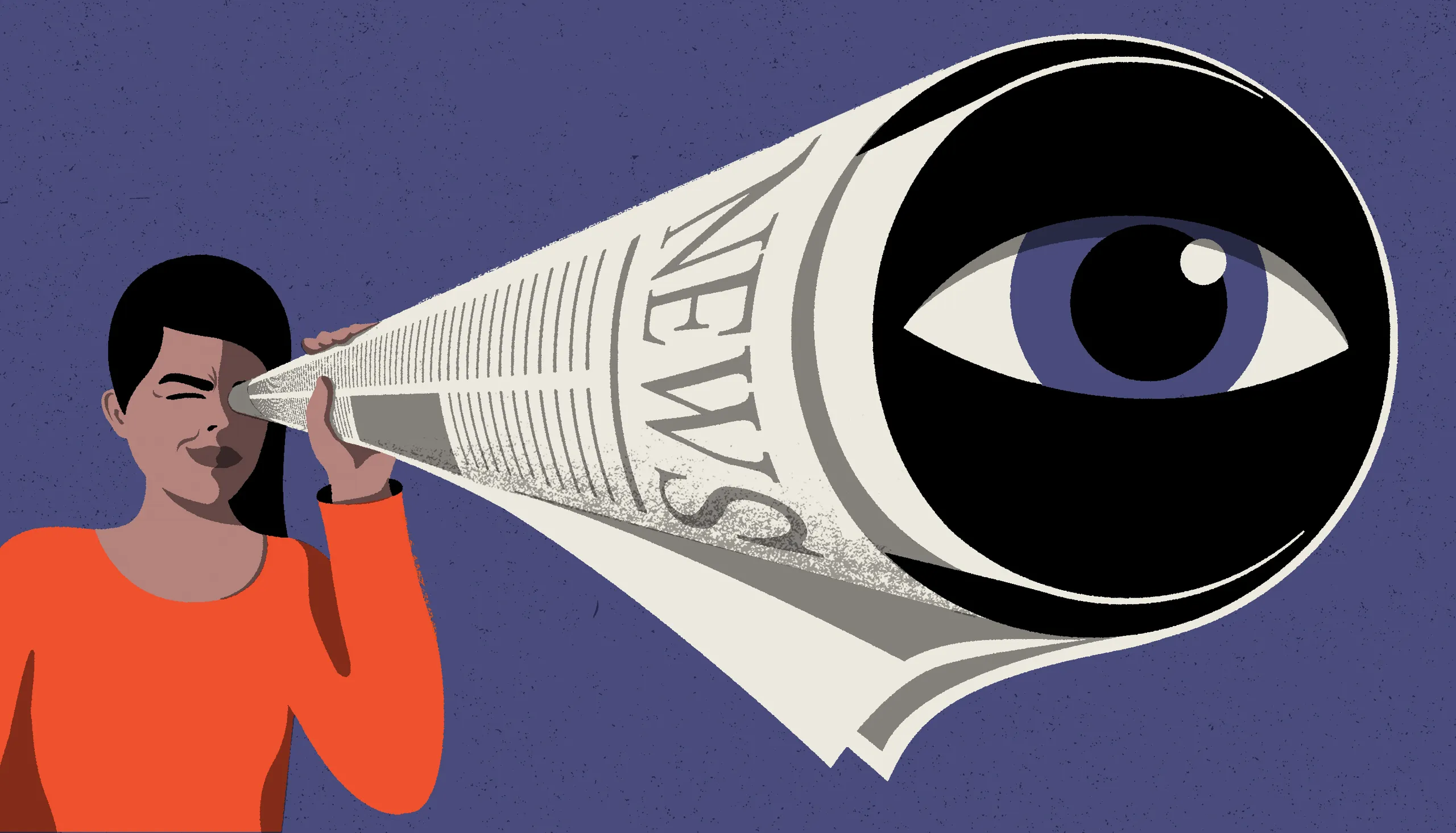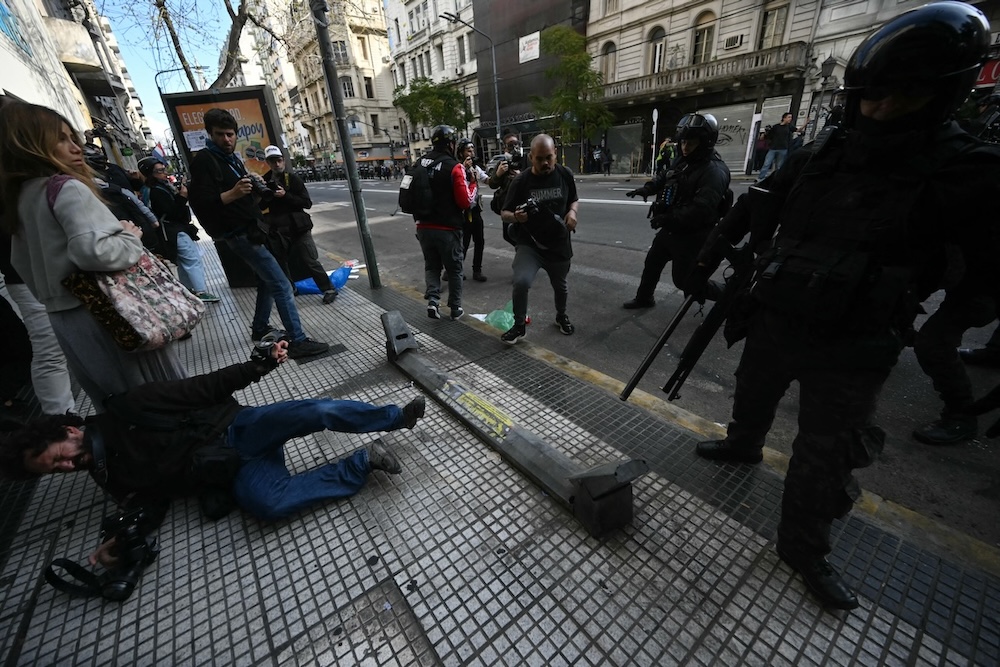
Turkish Reports Expose Escalated Pressures on Journalists Men and Women Alike
November 6, 2025
Suppression of Journalists Amplifies Press Freedom Alarm in Türkiye
November 6, 2025A riot police officer pushes a photojournalist to the ground during a protest outside the National Congress in Buenos Aires on September 11, 2024. Argentina's Chamber of Deputies is debating on September 11, whether to reverse a veto by President Javier Milei of a law to increase pensions. (Photo by Luis ROBAYO / AFP)
November 06, 2025 – Argentina –
The Foro de Periodismo Argentino (FOPEA) has condemned a controversial court decision in the province of Tucumán that imposes a six-month gag order on journalists and staff of the local television network CCC (Closed Circuit Television Company). The ruling, issued by acting judge Lucas Alfredo Taboada, follows a criminal complaint filed by Attorney General Edmundo “Pirincho” Jiménez, who accused CCC’s director and team of crimes such as obstruction of justice, institutional coercion, and public incitement against the judiciary. The order bans journalists, producers, and presenters associated with CCC from publishing, broadcasting, or posting any material through television, radio, or social media channels that could be considered insulting or discrediting toward prosecutors, judges, or members of the judicial branch.
The decision, which also authorises Argentina’s communications regulator ENACOM to monitor its enforcement, has sparked outrage among press-freedom advocates who describe it as a dangerous act of judicial censorship. FOPEA argued that the ruling constitutes a direct threat to freedom of expression and the public’s right to receive information, warning that it sets a precedent for the judicial system to silence criticism under the guise of protecting institutional integrity. Legal scholars echoed these concerns, noting that the Argentine Constitution and international human-rights treaties explicitly prohibit prior restraint on speech except in extreme and narrowly defined cases.
Media observers view the gag order as part of a troubling regional trend in which courts and public institutions resort to legal mechanisms to suppress independent reporting. The order, they argue, undermines journalism’s watchdog role by discouraging scrutiny of those in power. It also reflects growing hostility toward local media in provincial Argentina, where journalists often face political, legal, and economic pressure for exposing corruption or judicial misconduct.
FOPEA has called on national and international press-freedom organisations to closely monitor the case, urging Argentine authorities to reaffirm their commitment to the principles of transparency and accountability. The association stressed that while protecting institutional reputation is legitimate, it cannot come at the expense of democratic rights and journalistic independence. Unless overturned, the Tucumán ruling could embolden similar efforts to muzzle the press elsewhere, weakening Argentina’s hard-won democratic safeguards and eroding the public’s access to truth.
Reference –
FOPEA condemns court decision that imposes legal gag order on Argentine journalists




